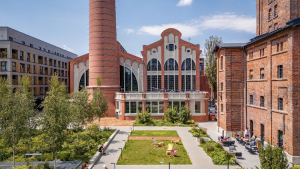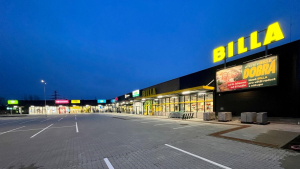
Savills has examined the key trends set to determine future global real estate investment activity in a series of articles and interviews launched today as part of its Impacts research programme, where the international real estate advisor studies the various social, environmental, demographic and technological ‘tipping points’ immediately facing global real estate.
Key findings:
- The trade conflict between US and China will influence cross-border activity for many years regardless of US leadership, thereby strengthening opportunities for real estate investment in markets including India, Vietnam and mainland Europe
- The global life sciences sector received $2.5 trillion of investment in the five years to 2019; this set to grow in the wake of COVID-19 with potential opportunities in new markets such as India, Spain, Australia and Austria, says Savills
- Long-term low interest rates will ensure real estate remains in demand as an asset class, with a mismatch between ‘dry powder’ and low availability of high-quality stock keeping competition high and yields low
While the ongoing trade conflict between the US and China will be overshadowed by the impact of the COVID-19 pandemic this year, it has already accelerated shifts in global trade patterns, says Savills. As Chinese manufacturing has relocated, freeing up large tracts of land for commercial and residential use on the edge of major cities, other nations have benefited. These include Vietnam, where manufacturing exports to the US rose by almost 36% in 2019 making it the US’s fastest-growing trade partner last year, and India, Malaysia, Thailand and South Korea, according to Savills. Industrial rents in districts in Ho Chi Minh City, for instance, rose 54% in the year to June 2019 as it became a major manufacturing market. India has also seen an uptick in light industrial occupation, notably in the automobile sector, with Blackstone and Brookfield among several investors who have already deployed large amounts of capital in its real estate market. Beyond Asia Pac, Savills says that other countries, notably Austria, Belgium, France and the Netherlands also increased their proportion of trade last year, signalling possible strengthening opportunities for real estate investors in these locations in certain sectors.
Long term, trade difficulties with the US may well accelerate the formation of a regional free trade block; a Regional Comprehensive Economic Partnership made up of 16 Indo-Pacific nations, including China, Australia, Japan, Indonesia and South Korea, may well be signed this year creating the world’s largest free trade area. Savills says this will boost wealth and stability, crucial elements for real estate investors.
Separately in Impacts, Savills highlights that real estate associated with the life sciences sector is going to be one of the fastest growing targets for investment, as companies in the sector look set to accelerate growth and become prevalent in more geographies. Savills says that although the $2.5 trillion of VC investment, a major predictor of future life science business growth and therefore demand for real estate, was focused on the US and China over the last five years, countries that saw particularly strong growth in 2019 include India (+180% YOY), Spain (+83% YOY), Australia (+79% YOY) and Austria (+453% YOY*). These countries may not be on real estate investors’ radars yet for life sciences, Savills says, but potentially offer them the opportunity to build a portfolio of investments around innovation clusters, comprising a diversity of property assets from startup incubators and R&D facilities to office HQ buildings.
While economic, political and cyclical risks remain and have been accentuated by the recent pandemic, investors will continue to target real estate, with a mismatch between ‘dry powder’ and low availability of high-quality stock keeping competition high and yields low. Savills says buyers will continue to work around risks through diversification and pricing, although the exceptional circumstances of 2020 will see much focus on a ‘flight to quality’ to prime office and logistics assets in major global cities such as Paris, Los Angeles, New York, Sydney and Tokyo in the immediate future, according to Savills. However, in the longer-term, innovative smaller cities such as Barcelona and Stockholm and developing Chinese cities such as Shenzhen and Shanghai, will become defensive plays for core investors, as will structural opportunities in multi-family properties and operational real estate, as demographic trends around the world will continue to drive demand for such assets. According to Savills, continued structural change in the retail sector, which began in the US and UK but is now moving into some mainland Europe and Asia Pacific markets, provides opportunities to buy retail assets where rents have already rebased or where prices are so low the new owners have the flexibility to rebase them.
Simon Hope, Head of Global Capital Markets for Savills, comments: “The impact of the COVID-19 pandemic itself on investors’ strategies is much smaller than the role it’s playing in accelerating some underlying structural trends which have been developing for years. These include rising e-commerce demand, the fragility of global distribution networks – affected today by factory closures but increasingly by climate change - and the strengthening of a major new trading block across Asia and Australasia. Real estate investors need to continue to adapt to this uncertainty. Careful asset selection, diversification and the right pricing of long-term risk will characterise those who are successful. The potential opportunities Impacts highlights in new geographies, such as India, Vietnam and innovative European cities, and swiftly growing sectors such as life sciences, are just some of the potential plays that may fit this profile.”
Paul Tostevin, director in Savills World Research and co-lead of Impacts programme, adds: “During times of adversity, real estate is perceived as a safe haven. With interest rates at record lows there remains lots of capital to be allocated, particularly from institutional investors who have to look abroad to meet their allocations.
“The structural changes Impacts identifies bring opportunities: capitalising on e-commerce disruption through repurposing retail, opportunities from scientific advances and the knowledge economy through a rapidly growing life sciences sector, and even opportunities within geopolitical change through geographical shifts arising from the US/China Trade War. These are tipping points that predate COVID-19, but the recent pandemic means that some of these shifts in real estate may now have an extra impetus behind them.”
Tomasz Buras, CEO at Savills in Poland, says: “Basing investment decisions on short-term events can have long-term consequences. While many companies are focusing now on responding to current disruptions it is easy to forget the importance of strategic planning. If you are aware of long-term trends you can act now, but in a way that will allow you to be prepared for the market in 24 months. This creates a great competitive advantage, especially in such long-term investments as real estate.”



